In today's digital age, ensuring that your personal data is protected has never been more crucial. With the implementation of the General Data Protection Regulation (GDPR), businesses now must adhere to strict guidelines to safeguard your information. This letter serves as a notification about our compliance efforts and how we are committed to upholding your privacy rights. We invite you to read more about our specific measures and how they benefit you!
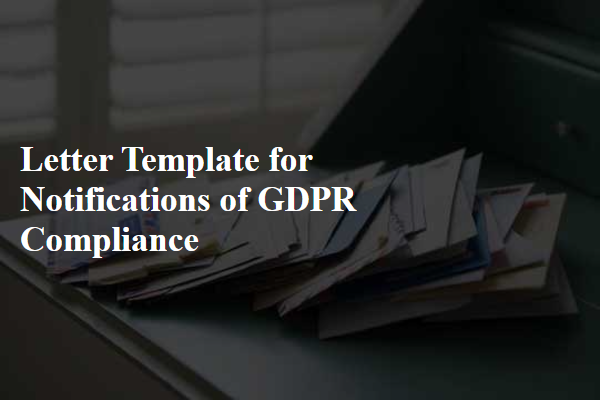
Purpose of Data Processing
Organizations must notify individuals about their compliance with the General Data Protection Regulation (GDPR), especially concerning the purpose of data processing. Clear and transparent communication is essential for entities like companies, educational institutions, or non-profit organizations handling personal data. The purpose(s) of data processing may include enhancing user experience, fulfilling contractual obligations, marketing activities, or regulatory compliance. By informing data subjects about how their personal data will be processed, including its collection, usage duration, and sharing with third parties, organizations build trust and uphold individuals' rights as outlined in GDPR Articles 5 and 6.
Legal Basis for Processing
Organizations must establish a clear legal basis for processing personal data in compliance with the General Data Protection Regulation (GDPR). This includes acknowledging specific articles, such as Article 6, which outlines permissible conditions for data processing. Consent, necessity for contractual purposes, legal obligations, vital interests, public tasks, and legitimate interests represent the six key bases. For example, if an organization processes data based on consent, it must ensure that individuals have an informed choice and can withdraw consent at any time. Clear documentation of this basis is crucial, as it provides transparency and accountability, fostering trust among stakeholders. Regular audits and updates to data processing activities are necessary to maintain compliance with evolving legal interpretations and guidelines.
Data Subject Rights
The General Data Protection Regulation (GDPR) mandates that individuals, known as data subjects, have specific rights regarding their personal data. These rights include the right to access personal data held by organizations, the right to rectification in case of inaccuracies, the right to erasure (commonly referred to as the right to be forgotten), the right to restrict processing, the right to data portability, and the right to object to processing based on legitimate interests. Organizations operating within the European Union, or processing data of EU residents, must ensure transparent communication regarding these rights, enabling data subjects to exercise them effectively. Key components to include in notifications are detailed instructions on how to request access or amendments, timelines for compliance, and contact information for the designated data protection officer (DPO). The GDPR, effective since May 25, 2018, emphasizes accountability and empowers individuals with greater control over their personal data.
Data Retention Period
The General Data Protection Regulation (GDPR) mandates that organizations must be transparent about their data retention policies. The data retention period outlines how long personal data, such as customer names, email addresses, and purchase histories, is stored following its collection. For example, many organizations, including e-commerce platforms and financial institutions, typically retain such data for a minimum of five years to comply with legal obligations. In specific cases like tax-related data, retention may extend to seven years or more as per governmental regulations. Following the expiration of the data retention period, sensitive information, like credit card details or personal identification numbers, must be securely deleted to ensure compliance and protect user privacy. Organizations are required to communicate these retention periods clearly to users, often through privacy notices displayed on official websites or during the data collection process.
Contact Information for Data Protection Officer
Data Protection Officers (DPO) play a critical role in ensuring adherence to the General Data Protection Regulation (GDPR), which came into effect on May 25, 2018, impacting all organizations handling personal data within the European Union. Organizations must maintain accurate contact information for their DPOs for effective communication regarding data protection matters. This includes essential details such as the DPO's name, direct telephone number, and official email address. Compliance with GDPR mandates that organizations publicly display this information in their privacy notices, facilitating transparency and accountability. By making DPO contact information readily available, organizations uphold individuals' rights regarding their personal data and foster trust through clear communication channels.

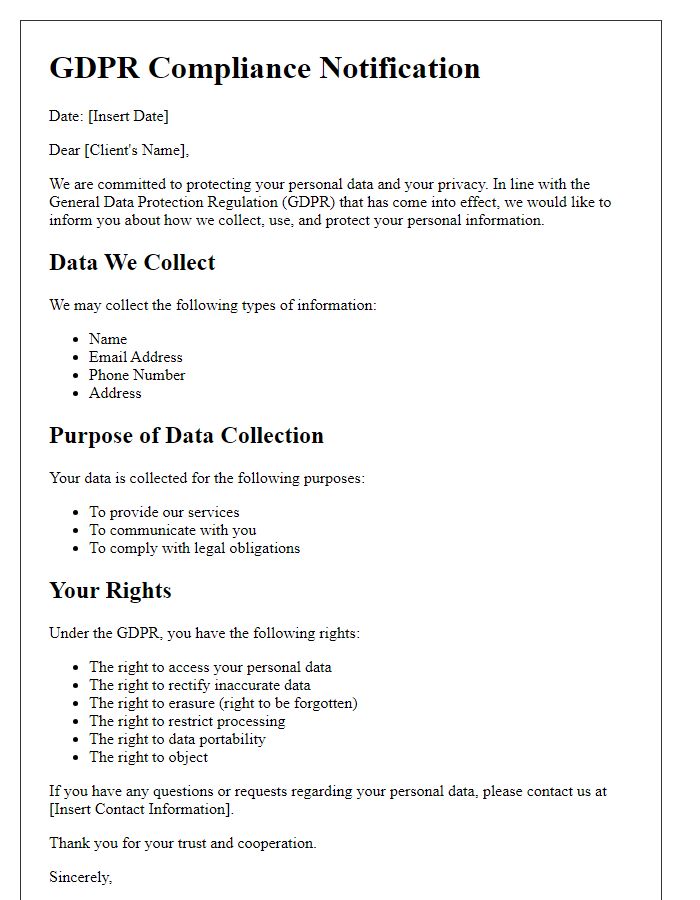
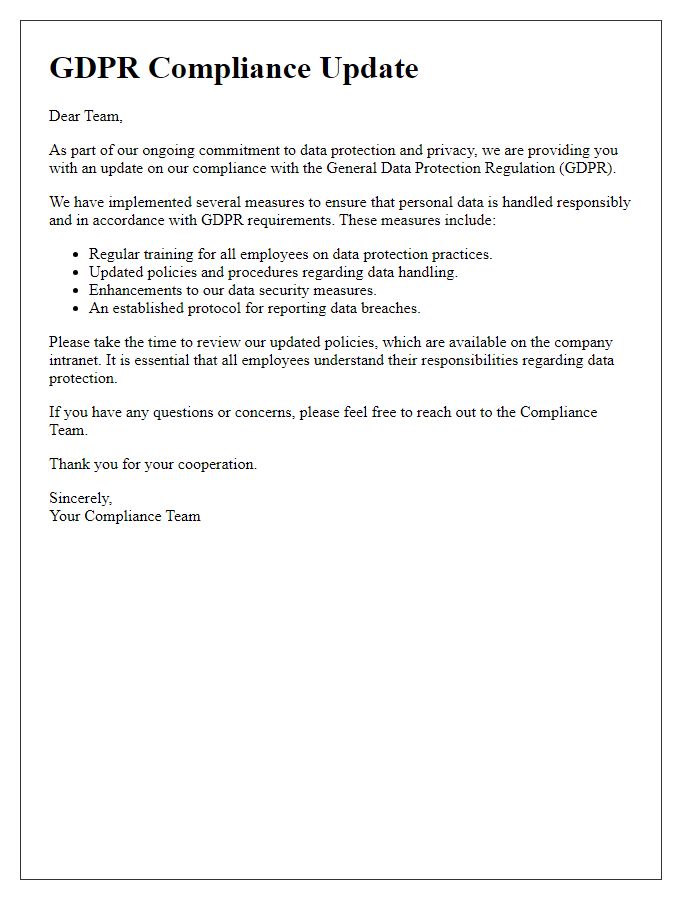
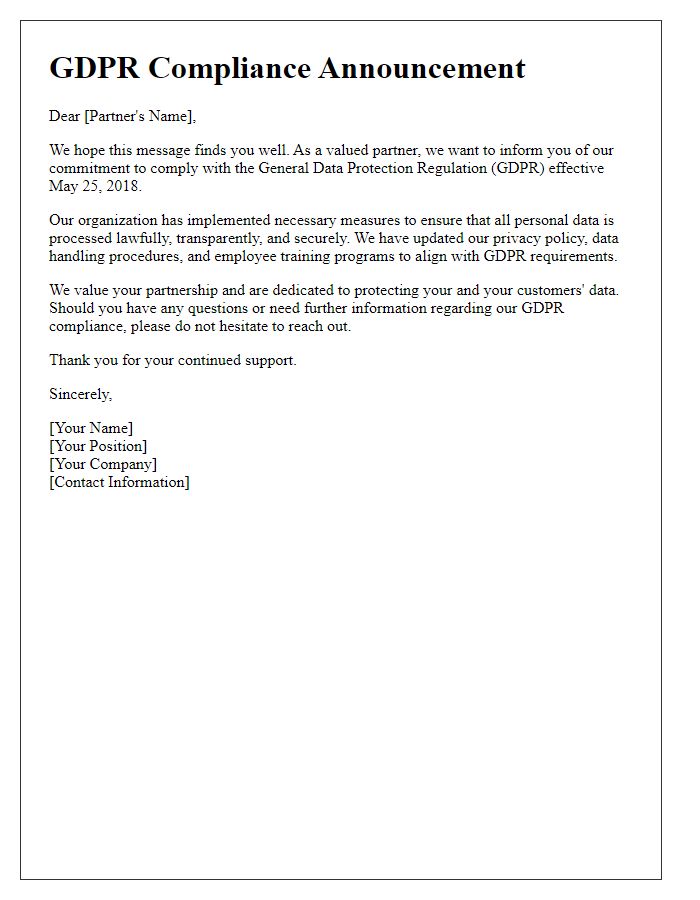
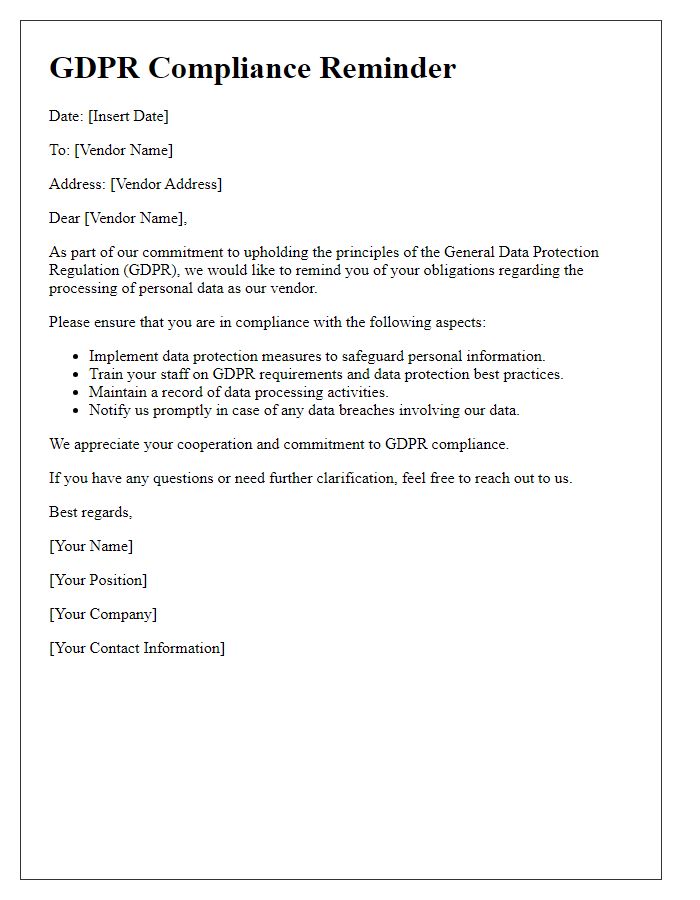
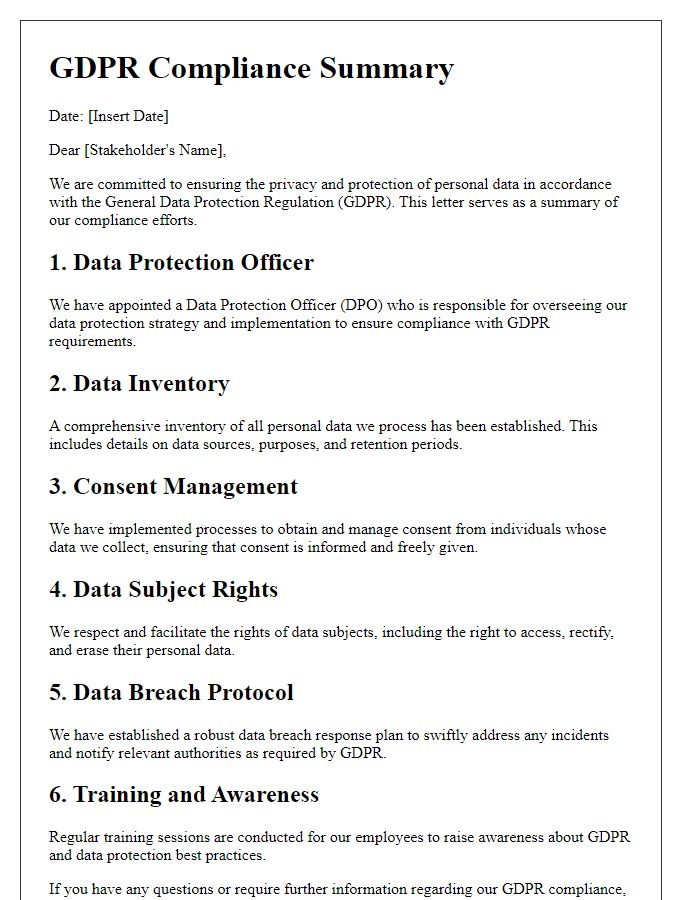
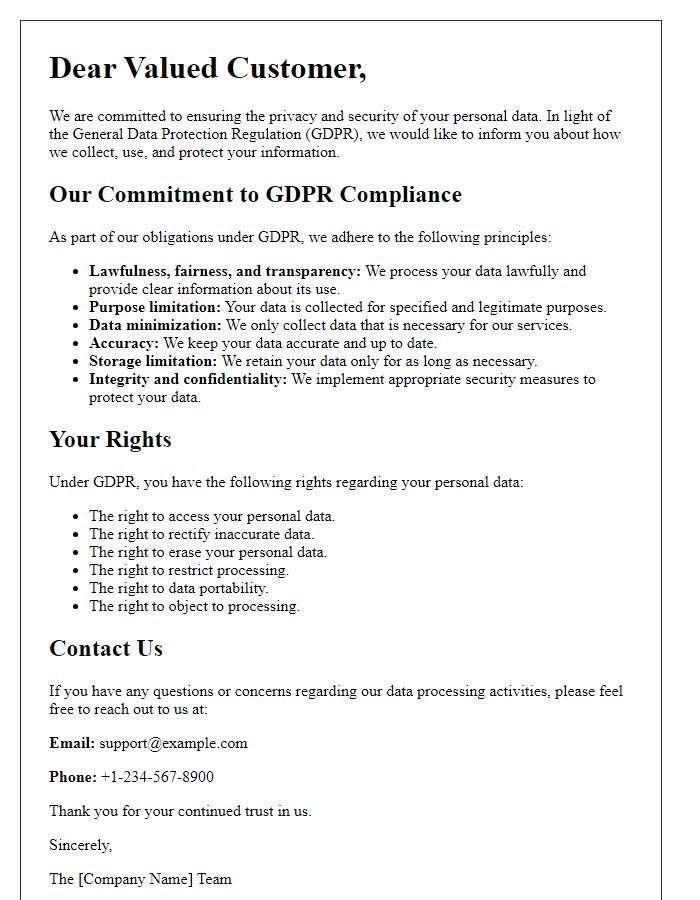
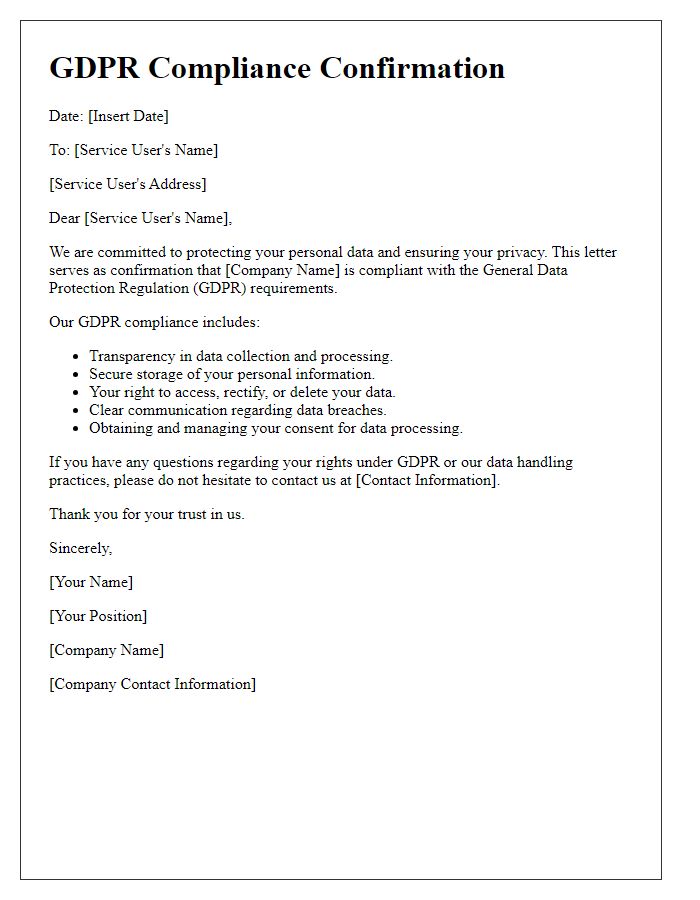

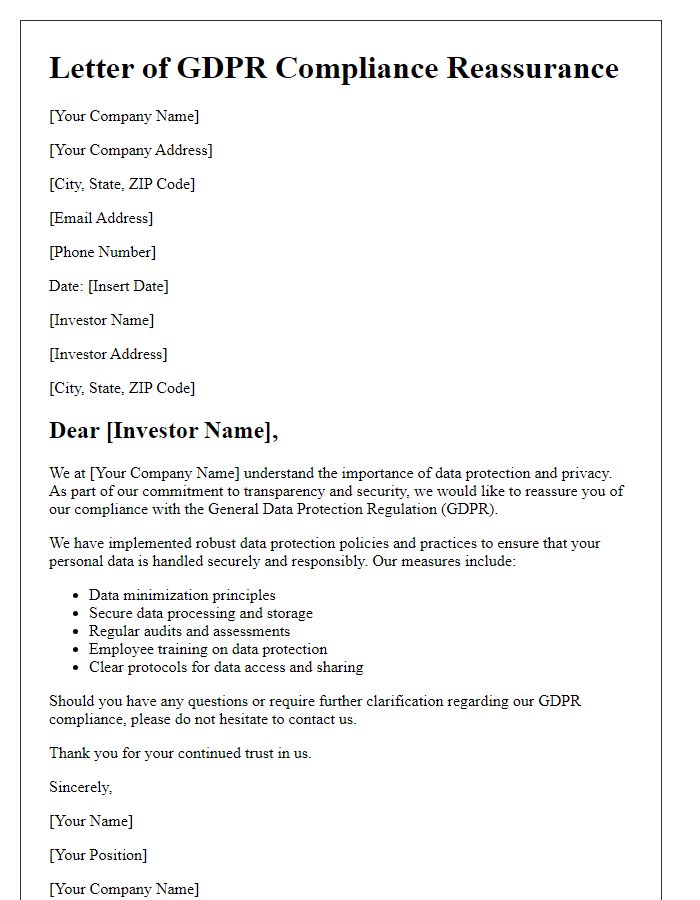
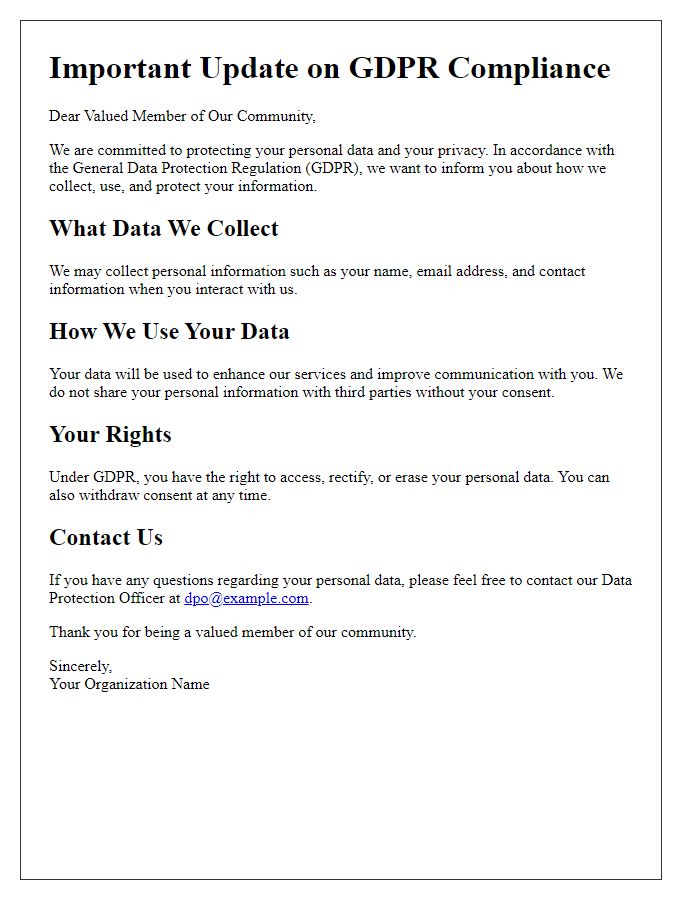

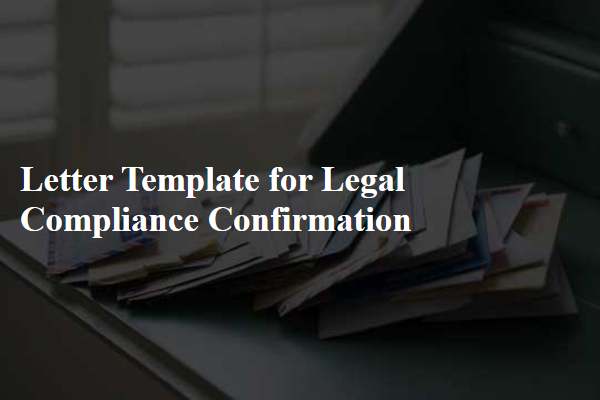
Comments